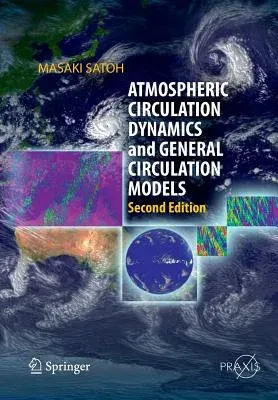Masaki Satoh
(Author)Atmospheric Circulation Dynamics and General Circulation Models (Softcover Reprint of the Original 2nd 2014)Paperback - Softcover Reprint of the Original 2nd 2014, 23 August 2016

Qty
1
Turbo
Ships in 2 - 3 days
In Stock
Free Delivery
Cash on Delivery
15 Days
Free Returns
Secure Checkout

Part of Series
Environmental Sciences
Part of Series
Springer Praxis Books
Part of Series
Springer Praxis Books / Environmental Sciences
Print Length
730 pages
Language
English
Publisher
Springer
Date Published
23 Aug 2016
ISBN-10
366251978X
ISBN-13
9783662519783
Description
Product Details
Author:
Book Edition:
Softcover Reprint of the Original 2nd 2014
Book Format:
Paperback
Country of Origin:
NL
Date Published:
23 August 2016
Dimensions:
24.41 x
16.99 x
3.84 cm
ISBN-10:
366251978X
ISBN-13:
9783662519783
Language:
English
Location:
Berlin, Heidelberg
Pages:
730
Publisher:
Weight:
1188.41 gm